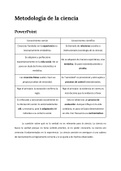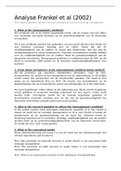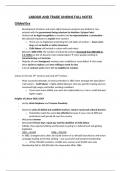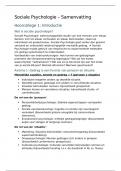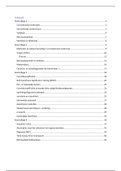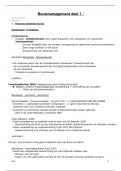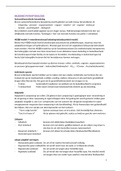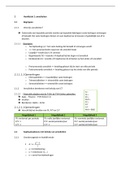Education 1
Daycare
Personnel
, Education 2
Module 1: Day-care systems in South Africa
1.1 Introduction
The need for quality care and education for children has increased.
1.2 Parental care vs daycare
❖ Today the primary education environment of the child usually consists of a
father, mother, brothers or sisters and possibly the grandparents.
❖ The family provides a primary educative environment or area that presents the
child with the essential social and educative structures in which she or he can
progress towards adulthood, and where attitude of social norms can be
formed.
❖ Home and family will always be primary educator. Any form of education
outside family, day-care or pre-school, can only be supplementary,
complementary and an extension of the home.
❖ Parents need supplementary care for a variety of reasons.
- Working parents depend on supplementary care to help with the care and
education of their children.
- Provide children with opportunities that cannot be provided within the
home, and to provide children with academic advantage.
- A substitute home is in some cases needed because of family illness or other
extenuating circumstances.
❖ Day-care centre should fulfil, but not replace, the duties of the biological
parent and should accept all the responsibilities thereof. They should provide
the child’s physical, social, emotional and intellectual, security and stability
needs.
❖ Parents and day-care centre should be partners in creating learning or an
educational environment for the child. Parents also seek confidence,
information and support from the day-care centre.
1.3 The role of day-care in the South African community
1.3.1 Pre-schools and childcare in South Africa
Pre-primary education in South Africa starts when children are aged three and can
run for a further four years until compulsory primary school education begins at aged
seven.
South Africa’s Early Childhood Development (ECD) programme provides
opportunities for fuller development of children. The main purpose is to protect
children’s rights and to develop their full emotional, social and physical potential.
, Education 3
1.3.2 Children’s rights and the ECD programme
The rights of young South African children (age 0-3) are expansive and include
protection from physical danger, adequate nutrition and health care, appropriate
immunisations, an adult with whom to form attachment, an adult who understand
and respond to their signals, things to look at, touch, hear, smell, taste, opportunities
to explore their world, appropriate language stimulation, support in acquiring new
motor, language and thinking skills, a chance to develop some independence, help
in learning how to control their own behaviour, opportunities too begin to learn to
care for themselves, and daily opportunities to play with a variety of objects.
Pre-school aged children also have the same rights, as well as the opportunities to
develop motor skills, encouragement of language through talking, being read to, and
singing; activities that will develop a sense of mastery, experimentation with pre-
writing and pre-reading skills, hands-on exploration for learning through action, and
opportunities for taking responsibility and making choices to develop his or her full
cognitive, emotional, social and physical potential.
1.3.3 Pre-school systems in South Africa
There are two pre-school systems in South Africa: one is funded by the government
and regulated provincially, and the other is independent and run by communities or
private bodies.
Both these programmes consist of two main components: pre-grade R and Grade R
programmes. Pre-Grade R programmes are meant for children between 0-4 and
Grade R (Reception Year) programmes are meant for 5-6-year-old children. Lessons
focus on language, mathematics, life skills, technology, arts and culture.
1.3.4 The role of the community
❖ There is evidence to prove that a high-quality pre-school educare programme
produces young adults with many more qualities than those who have not had
the experience. (GRASSROOTS)
Grassroots: a non-governmental organisation (NGO) that has done a lot of
research in connection with educare and therefore has lost of resource
materials available to any interested person. They have workshops and skills
training for the community and anybody who is interested in this field of work.
❖ Daycare and pre-school education therefore form part of the solution for
today’s problems in South Africa.
❖ The involvement of parents with the daycare institution, provide parent and
children education that will render assistance to families and the communities
to improve and uplift their way of life, by means of low-cost lectures, workshops
or panels on timely topics of child rearing, health or legislative bills.
❖ Parents and the broader community have to accept responsibility for the
education of the community’s children.
, Education 4
❖ The involvement of parents, with fund raising, provides them with the
opportunity to find and develop new relationships that can form a support
system when the need arises.
1.4 Classification of daycare services
1.4.1 Centre-based
❖ GRASSROOTS recommend centre based educare for 3-6-year olds, less
expensive and because children in that age group particularly need to play in
groups with other children.
❖ Caring and educating of babies, toddlers and pre-school children take place
in a specially equipped centre.
Examples of centre based daycare are:
❖ Creches
❖ Nursery schools
❖ Pre-primary schools
Creches
❖ Offer full daycare as well as education from birth to school going age
❖ Working parents mainly make use of these institutions
❖ Babies or children younger than 2 are usually cared for in separate unit
❖ Registration with Department of Health and Welfare Services is required
Nursery school / Pre-primary schools
❖ Objective is to teach and educate the child between years and school going
age
❖ Teaching staff should at least have a teaching diploma in pre-primary
education
❖ Has to be a minimum of 20 children enrolled and a full educational programme
must be offered
❖ Should be registered at the relevant education department
Daycare
Personnel
, Education 2
Module 1: Day-care systems in South Africa
1.1 Introduction
The need for quality care and education for children has increased.
1.2 Parental care vs daycare
❖ Today the primary education environment of the child usually consists of a
father, mother, brothers or sisters and possibly the grandparents.
❖ The family provides a primary educative environment or area that presents the
child with the essential social and educative structures in which she or he can
progress towards adulthood, and where attitude of social norms can be
formed.
❖ Home and family will always be primary educator. Any form of education
outside family, day-care or pre-school, can only be supplementary,
complementary and an extension of the home.
❖ Parents need supplementary care for a variety of reasons.
- Working parents depend on supplementary care to help with the care and
education of their children.
- Provide children with opportunities that cannot be provided within the
home, and to provide children with academic advantage.
- A substitute home is in some cases needed because of family illness or other
extenuating circumstances.
❖ Day-care centre should fulfil, but not replace, the duties of the biological
parent and should accept all the responsibilities thereof. They should provide
the child’s physical, social, emotional and intellectual, security and stability
needs.
❖ Parents and day-care centre should be partners in creating learning or an
educational environment for the child. Parents also seek confidence,
information and support from the day-care centre.
1.3 The role of day-care in the South African community
1.3.1 Pre-schools and childcare in South Africa
Pre-primary education in South Africa starts when children are aged three and can
run for a further four years until compulsory primary school education begins at aged
seven.
South Africa’s Early Childhood Development (ECD) programme provides
opportunities for fuller development of children. The main purpose is to protect
children’s rights and to develop their full emotional, social and physical potential.
, Education 3
1.3.2 Children’s rights and the ECD programme
The rights of young South African children (age 0-3) are expansive and include
protection from physical danger, adequate nutrition and health care, appropriate
immunisations, an adult with whom to form attachment, an adult who understand
and respond to their signals, things to look at, touch, hear, smell, taste, opportunities
to explore their world, appropriate language stimulation, support in acquiring new
motor, language and thinking skills, a chance to develop some independence, help
in learning how to control their own behaviour, opportunities too begin to learn to
care for themselves, and daily opportunities to play with a variety of objects.
Pre-school aged children also have the same rights, as well as the opportunities to
develop motor skills, encouragement of language through talking, being read to, and
singing; activities that will develop a sense of mastery, experimentation with pre-
writing and pre-reading skills, hands-on exploration for learning through action, and
opportunities for taking responsibility and making choices to develop his or her full
cognitive, emotional, social and physical potential.
1.3.3 Pre-school systems in South Africa
There are two pre-school systems in South Africa: one is funded by the government
and regulated provincially, and the other is independent and run by communities or
private bodies.
Both these programmes consist of two main components: pre-grade R and Grade R
programmes. Pre-Grade R programmes are meant for children between 0-4 and
Grade R (Reception Year) programmes are meant for 5-6-year-old children. Lessons
focus on language, mathematics, life skills, technology, arts and culture.
1.3.4 The role of the community
❖ There is evidence to prove that a high-quality pre-school educare programme
produces young adults with many more qualities than those who have not had
the experience. (GRASSROOTS)
Grassroots: a non-governmental organisation (NGO) that has done a lot of
research in connection with educare and therefore has lost of resource
materials available to any interested person. They have workshops and skills
training for the community and anybody who is interested in this field of work.
❖ Daycare and pre-school education therefore form part of the solution for
today’s problems in South Africa.
❖ The involvement of parents with the daycare institution, provide parent and
children education that will render assistance to families and the communities
to improve and uplift their way of life, by means of low-cost lectures, workshops
or panels on timely topics of child rearing, health or legislative bills.
❖ Parents and the broader community have to accept responsibility for the
education of the community’s children.
, Education 4
❖ The involvement of parents, with fund raising, provides them with the
opportunity to find and develop new relationships that can form a support
system when the need arises.
1.4 Classification of daycare services
1.4.1 Centre-based
❖ GRASSROOTS recommend centre based educare for 3-6-year olds, less
expensive and because children in that age group particularly need to play in
groups with other children.
❖ Caring and educating of babies, toddlers and pre-school children take place
in a specially equipped centre.
Examples of centre based daycare are:
❖ Creches
❖ Nursery schools
❖ Pre-primary schools
Creches
❖ Offer full daycare as well as education from birth to school going age
❖ Working parents mainly make use of these institutions
❖ Babies or children younger than 2 are usually cared for in separate unit
❖ Registration with Department of Health and Welfare Services is required
Nursery school / Pre-primary schools
❖ Objective is to teach and educate the child between years and school going
age
❖ Teaching staff should at least have a teaching diploma in pre-primary
education
❖ Has to be a minimum of 20 children enrolled and a full educational programme
must be offered
❖ Should be registered at the relevant education department

